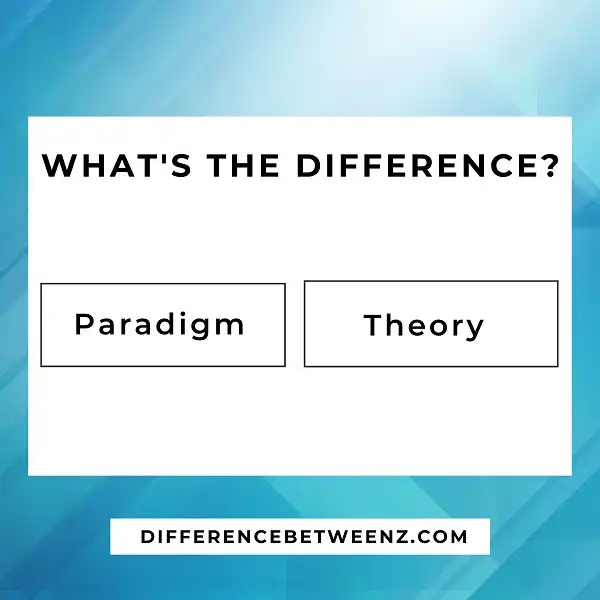When it comes to the world of academia, there are a few words and phrases that tend to cause confusion for those who are not familiar with the lingo. Paradigm and theory are two such words. Though they may sound similar, they have different meanings. In this blog post, we will explore the difference between paradigm and theory, and provide examples to help illustrate their distinct meanings. Stay tuned!
What is Paradigm?
Paradigm is a word used to describe the basic beliefs or worldview that a person, group, or culture has. It is the way we see and understand the world around us. Paradigms can be based on religious beliefs, political beliefs, or cultural conditioning. They can be positive or negative, helpful or harmful. Paradigms can help us make sense of the world and give us a framework for understanding our place in it. They can also limit our thinking and prevent us from seeing other points of view. It is important to be aware of our paradigms so that we can question them and expand our understanding of the world.
What is Theory?
The theory is a contemplative and systematic study of a particular subject, branch of knowledge or problem that is conducted to establish its basic principles and laws. A theory typically consists of a set of statements or premises that purport to explain or predict certain events or situations.
- The term can also be used more generally to refer to an idea, proposition, or guess that is not yet proven but is tentatively accepted as true. In the scientific method, a theory is an explanation for observations that have been repeatedly confirmed and verified through experimentation.
- A scientific theory can be retracted if new evidence arises that contradicts it. In contrast, a fact is an empirically verifiable observation. Theories are essential in science as they provide a framework for understanding complex phenomena and guiding future research.
- However, it is important to note that theories are always subject to change and refinement as new evidence arises. In other fields such as the humanities, the word “theory” may refer to more abstract ideas or propositions that are less susceptible to empirical verification. Nonetheless, all theories can be critically evaluated on the basis of their logical coherence, explanatory power, and parsimony.
Difference between Paradigm and Theory
A paradigm is a set of beliefs, values, and techniques that are held by a group of people. A theory, on the other hand, is a set of concepts that explain how things work. Paradigms are used to help people understand the world around them, while theories are used to explain how and why things happen. Paradigms can be changed over time, as new information is discovered or new ways of thinking emerge. Theories, however, are designed to be much more stable, as they are based on scientific evidence and logical reasoning. As a result, it is much harder to change a theory than it is to change a paradigm.
Conclusion
We’ve looked at the difference between a theory and a paradigm, and how they can be helpful in understanding different aspects of our world. But what happens when the two clash? In the next section, we will explore just that by looking at an example where scientists were confronted with Paradigm Shift.


